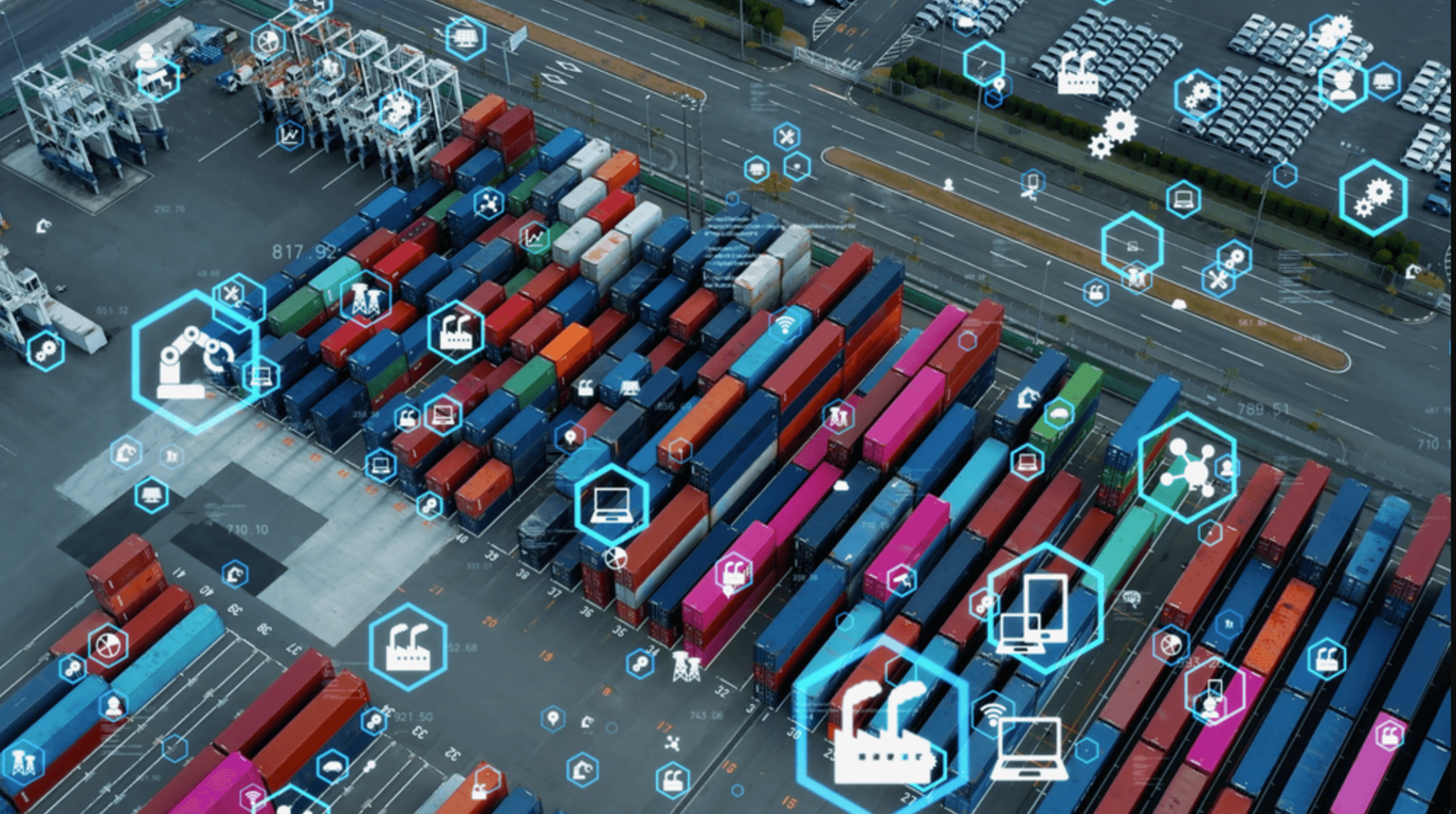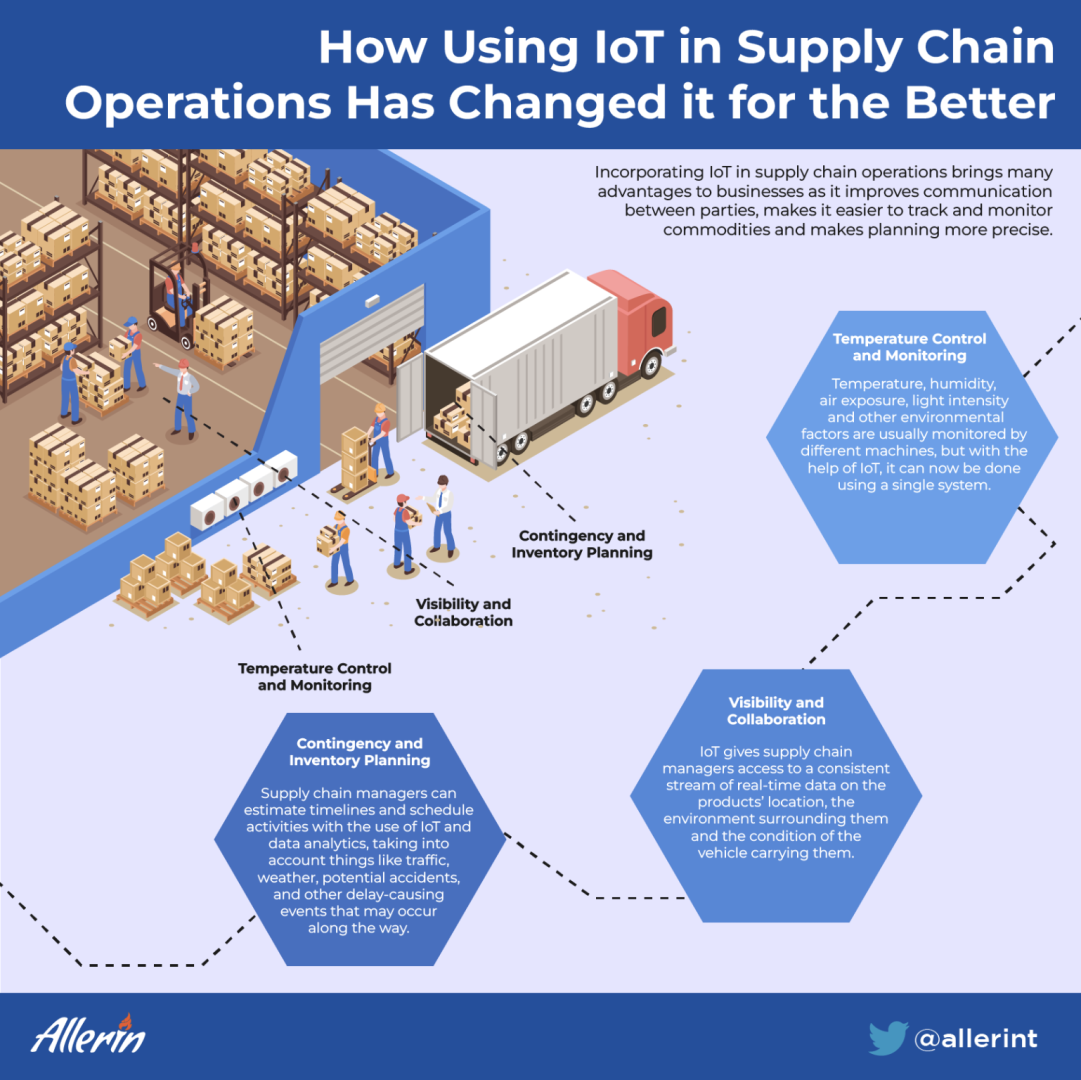Comments
- No comments found

Incorporating IoT in supply chain operations brings many advantages to businesses.
It improves communication between parties, makes it easier to track and monitor commodities and makes planning more precise.
Supply chain operations involve numerous interdependent activities, such as procurement, planning, manufacturing, and logistics. These activities need to be performed in a fairly synchronized manner to ensure maximum efficiency. To ensure that a supply chain performs efficiently, it is important to monitor and control countless variables, from equipment health and utilization to inventory levels and storage conditions. Moreover, tracking the movement of goods through supply chains adds an extra layer of complication to supply chain management. Understanding where they are, how they are being held, and when they may be expected at a particular location can be hard to know at any given moment. This is where the use of IoT in supply chain activities makes a difference.
IoT technology can help companies better serve their consumers while also saving money and increasing operational efficiency when used in supply chain operations. The following are just a few ways in which businesses can make their supply chains run more smoothly by leveraging the advantages of IoT technology.

Asset-intensive industries, including manufacturing, energy and medicine, have historically faced detrimental elements like delayed product deliveries, theft and lost or damaged goods. But with IoT, tracing the movement of goods through the supply chain is made considerably easier. It is possible for suppliers, producers and distribution centers to set up for the arrival of goods, which shortens handling times and guarantees that resources are processed quickly.
IoT gives supply chain managers access to a consistent stream of real-time data on the products’ location, the environment surrounding them and the condition of the vehicle carrying them. One can keep track of the delivery of both finished items and raw materials and make informed decisions to optimize operations.
In industries like food and chemicals, where the temperature is vital in determining the quality of the products, a temperature monitoring solution is extremely helpful.
Temperature, humidity, air exposure, light intensity and other environmental factors are usually monitored by different machines, but with the help of IoT, it can now be done using a single system.
A closed system's temperature is continuously monitored and shared through a network of sensors and thermostats with a centralized platform. These devices send an alert if certain conditions are met. This makes it much easier to minimize losses and monitor product quality across the supply chain.
Inventory planning and keeping up with the market demand and supply is something that is extremely important when it comes to the supply chain. But with so many geographically dispersed players involved, uncertainty around supply chain processes has always been a big challenge.
Supply chain managers can estimate timelines and schedule activities with the use of IoT and data analytics, taking into account things like traffic, weather, potential accidents and other delay-causing events that may occur along the way. Supply chain managers can receive real-time alerts from the analytics-based system, which streamlines contingency plans.
With the help of IoT in supply chains, businesses are getting greater visibility into their operations. From the point of manufacturing to the point of consumption, this visibility is enabling better customer experience, accurate demand forecasting and lower operational costs, among other benefits. To effectively harness these benefits of IoT in supply chains, companies should consider investing in reliable and efficient software solutions. Many options are available, but finding the best spc software is crucial for organizations looking to take advantage of real-time monitoring and analytics capabilities. Such software can help businesses view Statistical Process Control (SPC) data in real-time, allowing them to make faster decisions and adjustments to improve overall supply chain performance.
Naveen is the Founder and CEO of Allerin, a software solutions provider that delivers innovative and agile solutions that enable to automate, inspire and impress. He is a seasoned professional with more than 20 years of experience, with extensive experience in customizing open source products for cost optimizations of large scale IT deployment. He is currently working on Internet of Things solutions with Big Data Analytics. Naveen completed his programming qualifications in various Indian institutes.
Leave your comments
Post comment as a guest